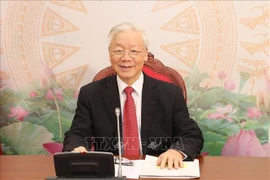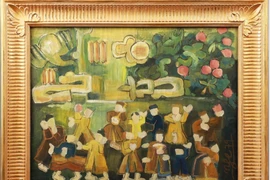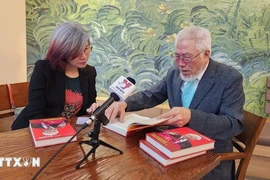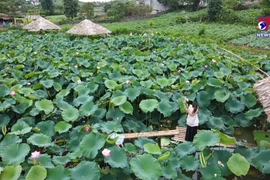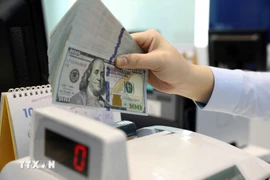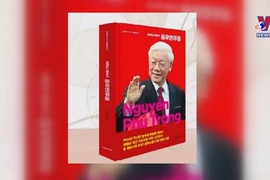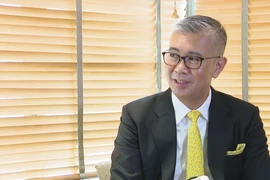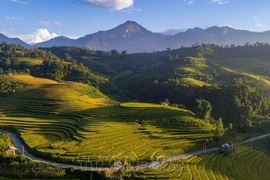When mentioning weaving, people may think of women laboriously sitting besides weaving looms. However, you may doubt your current knowledge on weaving when watching silkworms do the weaving.
These tiny silkworms are doing weavers’ job. By “training” the worms to weave, only very few days are needed to complete a silk blanket. The idea to produce silkworm-made batting for blankets, pillows and similar items came to Phan Thi Thuan, from Ha Noi's My Duc District, five years ago when the silk production in her village started to dwindle.
Weaver Phan Thi Thuan told reporters, "I have tossed and turned to find a new path for Vietnam’s silk products and came up with the idea of training silkworms to weave."
To start, suitable silkworms will be put on a wooden frame on flat ground (the size of the frame depends of the size of blankets). It will take the first day for the insects to grope around to make their nests on the ground. In the next days, they start to secrete the silk. Each worm will secrete a single thread of raw silk from 400m to 500m long.
However, the frame must be put in an area with an environmental condition similar to that inside their cocoons to encourage the worms to secrete the silk
Phan Thi Thuan recalled: "When the worms could firstly spin silk fibres themselves into blanket fillings, I was so happy." No men or machines ever could make the silkworms work like weavers and no weavers ever could create silk products as the silkworms do, she added.
Thuan also has her own mulberry garden to provide her silkworms with organic food so that their products are at the highest quality and environmentally friendly.
According to Nguyen Thi Thuong, a mulberry grower in Thuan's farm, the mulberry leaves are free from chemical substances as silkworms are so sensitive that they can screw up when exposing to chemical substances.
Her efforts and determination to develop the silk industry were widely recognised. She was presented with many merits and awards, including the first prize for technical innovation of farmers nationwide in 2015.-VNA










